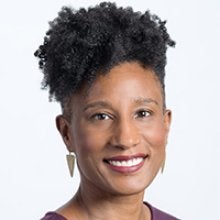

“I am truly honored by this recognition and to be included on such a notable list of thought leaders. My research has always been driven by a desire to inform educational practice, promote equity, and transform institutions, and I'm grateful to have the opportunity to inform national conversations and change efforts with my work,” said Dr. Griffin. “Given all the challenges we face, these times call for all of us to be even more vocal and intentional in our efforts to translate our research into actionable strategies, intentionally informing policy and practice.”
This annual list is published by Frederick M. Hess, American Enterprise Institute director of education policy studies and Education Week blogger. This annual exercise spotlights the top 200 education scholars who move ideas from academic journals into the national conversation. Using nine metrics, Hess calculated how much university-based academics contributed to public discussions of education.
“One small way to encourage academics to step into the fray and revisit academic norms is, I think, by doing more to recognize and value those scholars who engage in public discourse,” explains Hess. “As I see it, the extraordinary policy scholar excels in five areas: disciplinary scholarship, policy analysis and popular writing, convening and shepherding collaborations, providing incisive media commentary, and speaking in the public square. This whole endeavor is admittedly an imperfect exercise. Of course, the same can be said about college rankings, NFL quarterback ratings, or international scorecards of human rights. Yet such efforts convey real information and help spark useful discussion.”
Read the full article here.



